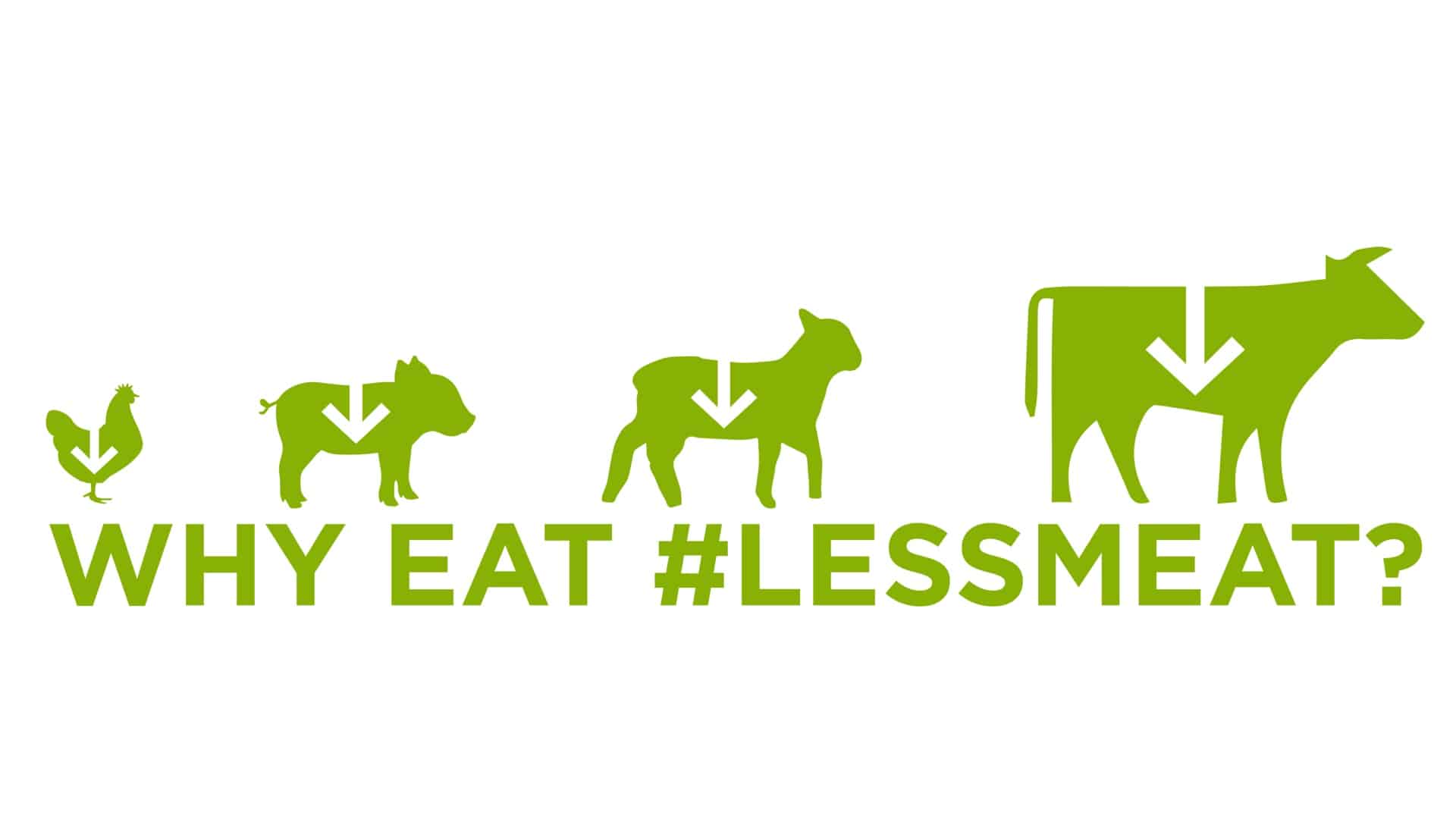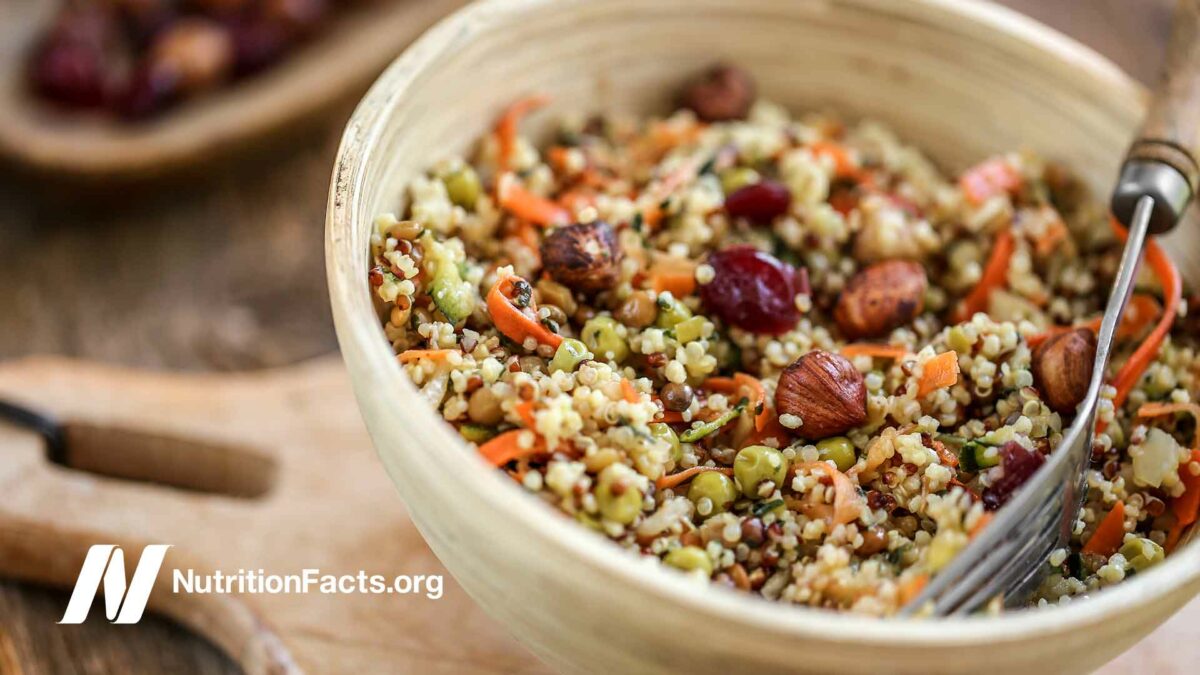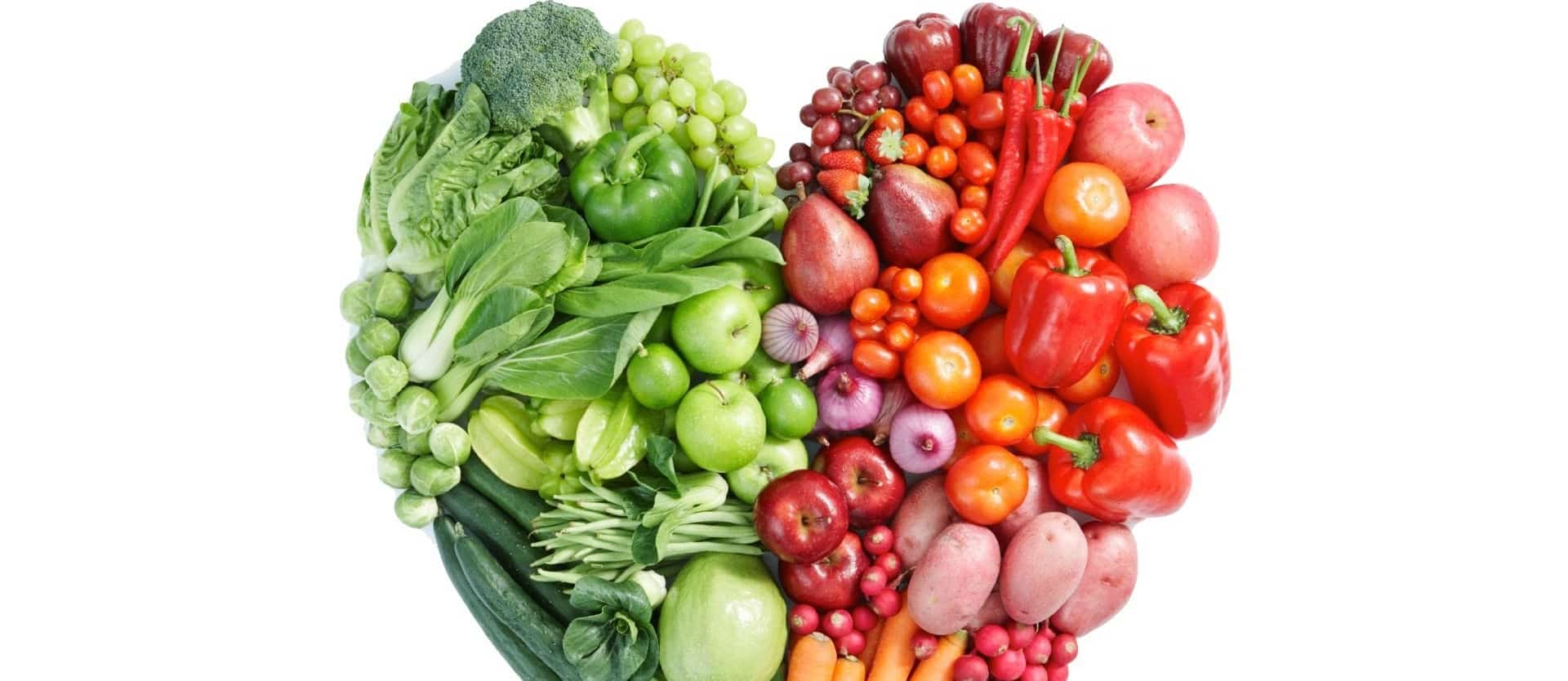
Flexitarians
Researchers have shown that a more plant-based diet may help prevent, treat, or even reverse the progression of some of our leading causes of death, including heart disease, type 2 diabetes, and high blood pressure. Interventional studies of plant-based diets have shown, for example, 90 percent reductions in angina attacks within just a few weeks. Plant-based diet intervention groups have reported greater diet satisfaction than control groups, as well as improved digestion, increased energy, and better sleep, and significant improvement in their physical functioning, general health, vitality, and mental health. Studies have shown plant-based eating can improve not only body weight, blood sugar levels, and ability to control cholesterol, but also emotional states, including depression, anxiety, fatigue, sense of well-being, and daily functioning.
It isn’t all or nothing, though.
Transitioning or shifting away from a typical standard American diet towards a plant-based eating pattern has been shown to benefit us in myriad ways. Consider flexitarians, those who occasionally eat meat so are not vegetarian, vegan, or plant-based. Researchers found that as diets become increasingly plant based, there appears to be a stepwise drop in diabetes rates, for instance. Based on a study of 89,000 Californians, flexitarians appear to cut their rate of diabetes by 28 percent, good news for those who eat meat maybe once a week rather than every day. Those who cut out all meat except fish appear to cut their rates in half. What about those eliminating all meat, including fish? They appear to eliminate 61 percent of their risk. And those who go a step farther and drop eggs and dairy foods too? They may drop their diabetes rates 78 percent compared with people who eat meat on a daily basis. There also appears to be a stepwise drop in hypertension rates the more plant-based foods you eat. Compared with people who eat meat more than once a week, flexitarians had 23 percent lower rates of high blood pressure.
For substantiation of any statements of fact from the peer-reviewed medical literature, please see the associated videos below.
Popular Videos for Flexitarians


Animal Protein vs. Plant-Based Protein
I discuss a public health case for modernizing the definition of protein quality.
Diabetes Reversal: Is It the Calories or the Food?
Even when study subjects were required to eat so much that they didn’t lose any...
Blocking the First Step of Heart Disease
By preventing the buildup of cholesterol in our bloodstream, we can prevent atherosclerosis in our...
Counteracting the Effects of Dioxins Through Diet
Phytonutrients in certain plant foods may block the toxic effects of industrial pollutants, like dioxins,...
Switching from Beef to Chicken & Fish May Not Lower Cholesterol
The negative impact of red meat on our cholesterol profile may be similar to that...All Videos for Flexitarians
-

How Not to Die from High Blood Pressure
How might we prevent and reverse hypertension, the number-one risk factor for death in the world?
-

The Palatability of Cancer Prevention
Dietary guidelines often patronizingly recommend what is considered acceptable or achievable, rather than what the best available balance of evidence suggests is best.
-

Diet and Climate Change: Cooking Up a Storm
While epidemics of chronic disease are currently by far our leading causes of death, global warming is considered a looming public health threat. How can we eat to combat dietary diseases and greenhouse gas emissions at the same time?
-

Switching from Beef to Chicken & Fish May Not Lower Cholesterol
The negative impact of red meat on our cholesterol profile may be similar to that of white meat.
-

Do Flexitarians Live Longer?
Does just reducing one’s intake of meat, dairy, and eggs significantly reduce mortality?
-

Plant-Based Diets and Diabetes
We’ve known for a half century that plant-based diets are associated with lower diabetes risk, but how low does one have to optimally go on animal product and junk food consumption?
-

Do Vegetarians Get Enough Protein?
Nutritional quality indices show plant-based diets are the healthiest, but do vegetarians and vegans reach the recommended daily intake of protein?
-

Tell Your Doctor if You Eat Grapefruit
The role white and pink (red) grapefruit may play in weight loss and cholesterol control, as well as the suppression of drug-clearance enzymes within the body.
-

Heart Disease Starts in Childhood
By age 10, nearly all kids have fatty streaks in their arteries. This is the first sign of atherosclerosis, the leading cause of death in the United States. So the question for most of us is not whether we should eat healthy to prevent heart disease, but whether we want to reverse the heart disease we may already have.
-

Methionine Restriction as a Life-Extension Strategy
Plant-based diets may prove to be a useful nutrition strategy in both cancer growth control as well as lifespan extension, because these diets are naturally lower in methionine.
-

More than an Apple a Day: Preventing the Most Common Diseases
Dr. Greger has scoured the world’s scholarly literature on clinical nutrition, and developed this brand-new live presentation on the latest in cutting-edge research on how a healthy diet can affect some of our most common medical conditions.
-

Fibromyalgia vs. Mostly Raw & Mostly Vegetarian Diets
How plant-based does one’s diet need to be in order to effectively treat fibromyalgia?
-

Fibromyalgia vs. Vegetarian and Raw Vegan Diets
Plant-based diets may be effective for the treatment of fibromyalgia, a painful condition suffered by millions.
-

Metabolic Syndrome and Plant-Based Diets
Plant-based diets appear to protect against metabolic syndrome, also known as syndrome X, which is characterized by the so-called “deadly quartet”—abdominal obesity, high fasting sugars, high triglycerides, and high blood pressure.
-

How Plant-Based to Lower IGF-1?
Those eating vegan had significantly lower IGF-1 levels and higher IGF-binding proteins than those just eating vegetarian, suggesting that the more plant-based one’s diet becomes, the lower one’s risk of fueling growth hormone-dependent cancer growth.
-

Uprooting the Leading Causes of Death
Death in America is largely a foodborne illness. Focusing on studies published just over the last year in peer-reviewed scientific medical journals, Dr. Greger offers practical advice on how best to feed ourselves and our families to prevent, treat, and even reverse many of the top 15 killers in the United States.
-

Dietary Treatment of Crohn’s Disease
Meat (including fish), cheese, and animal protein intake in general have been associated with an increased risk of inflammatory bowel disease (IBD). In the meantime, plant-based diets may not only help prevent such conditions, but treat them as well, resulting in the longest recorded remission rates for Crohn’s disease.
-

Preventing Cataracts with Diet
Risk of developing cataracts was compared in meat-eaters, fish-eaters, vegetarians, and vegans.
-

EPIC Findings on Lymphoma
In a study of a half million people, which was most associated with the risk of developing lymphoma? Red meat, processed meat, poultry, offal, eggs, or milk?
-

Daily Source of Vitamin B12
Fortified foods, such as some breakfast cereals and types of nutritional yeast, can provide another cholesterol-free source of vitamin B12.
